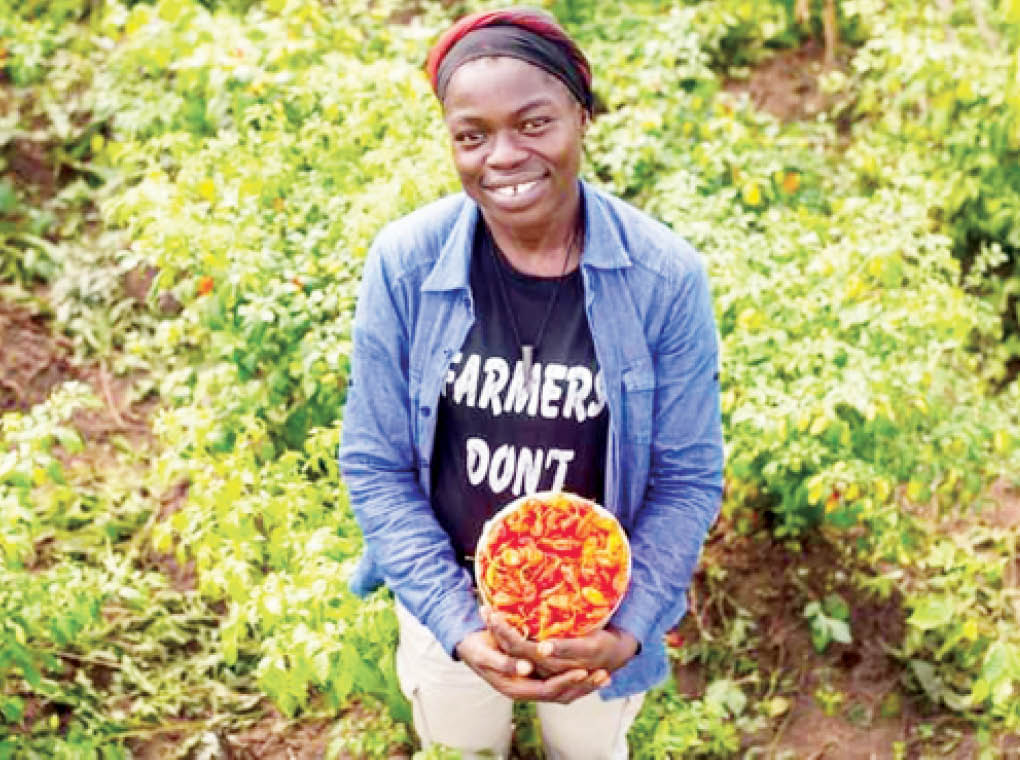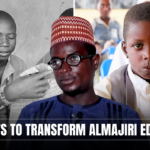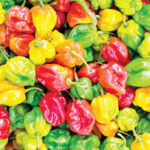Miss Ruth Bose Suberu is a graduate of History and International Studies from the Lagos State University (LASU). After her graduation, she worked briefly with a construction firm and then ventured into farming with a focus on vegetables. She shares her story in this interview.
At what point did you get inspiration to go into farming?
Farming is just a way of life, a calling and a duty to humanity. After my graduation in 2008, I worked with a construction firm. But then I was not too contended with what I was doing, I had to resign. Then, I became a farmer in 2015.
While working after graduation, I knew that I wasn’t in the right place. I needed a place where I could work at my convenience, make progress and also be happy with what I am doing. I did research and my love for plants and animals pushed me into farming. I discovered that it is what I can do, and even when I fail, I will still be willing to continue and put in more effort. I started making enquiries on how to get land and how to start the business.
I started in 2015 with maize and cassava somewhere in Owode, close to Idiroko, Ogun State. As of today, I am proud of what I am doing, and it has been successful. I have no regrets because I am doing what I love and I’m getting results from it.
What is your focus area?
I major in vegetables: tomato, pepper, cucumber, okro and cabbage. I do them in commercial quantities. When I started the vegetable farm, I started with two plots of land, from there I increased to two acres and today I have 16 acres. Presently, I have pepper, pepper is my major crop, then I have tomato, cucumber and okro.
What informed your choice of pepper?
When I went for a training, it was mainly on cucumber and tomato, then in 2016, I employed a guy from the Republic of Benin and he was an expert in pepper farming. He introduced me to it and I started making more research. I discovered that pepper is one of the vegetables most farmers ignore because “it doesn’t bring instant money and you don’t make a lot of money from it”.
I started it fully in 2016 and I discovered that there is market for it and it brings in more money and you harvest for a long period. If I farm tomato and cucumber, their harvest periods are short, but when it comes to pepper, the day you start harvesting, you will harvest for a very long time, and it is what every household consumes. Those are the reasons I farm pepper in large quantity.
How challenging was it when you started?
Funding was the major challenge, and then getting land. So I started little and the moment I realised that I needed to take things easy and do them in bits; like investing whatever I get from what I farm and sell, I invested more into the business: getting inputs and irrigation facilities
What was your capital when you started and how much patronage do you get presently?
It was less than N100,000, and I have not been able to meet up with the demands of my customers, but I have a large customer base. The little effort I am making is going to just few of them as I have a lot of them.
Does that put you under pressure to expand the business?
I am under pressure to expand my farming business, and I am also making effort to see that those who are interested in the business are given opportunity by showing them the way and how to make a living from farming.
Are there export opportunities and are you ready to tap into them?
There are export opportunities, but I have never thought of that because we have a demand we cannot even meet up with, and so thinking of exporting is like taking about giving what I am supposed to give to my people to someone else. I have enough demand here, and if I am able to meet up with the demand, I can then start thinking of exporting.
What is your perception of Nigerian women going into agriculture?
Globally, there is more focus on women because of the fact that they are more concerned about the food security of their families.
Presently, we have more women in agriculture because when we think about the existence of humans it is all about food, and if food is taken care of, the rest is simple. So, women in agriculture; we boost food in circulation and also generate more income individually, as families and as a nation.
Insecurity has been a major challenge to farmers, what has been your experience as a female farmer?
I have not had insecurity situation because in most of all these rural settings, we have people who are vigilant. I have not had any security challenge in my location.
How much patronage or support have you received from government?
The only support or what I have gotten from government is a tin of tomato seeds, which I got in Ogun State.
Are you planning to further your studies?
After graduation, I was trying to get a masters in what I studied in my first degree, but since I started the farming, I am more into agriculture, and I plan to have a degree in agriculture. I am working towards that.
What were the feelings of your friends when you abandoned your degree and went into farming?
I am in touch with some of them and they are happy with what I am doing. Each time they call, they congratulate me because most of them are not practicing what we studied. When we were in school they made us to understand that we would either work in foreign affairs, embassies and the rest of that, but only about 30 per cent of us are in those places. So most us are practically doing things we didn’t study.
I think education is just an eye opener on what one should do; it is not about getting a good job in the profession you studied.
How is your social life like?
I am more of an introvert; even before I started farming. The social life is not there as I am more of an indoor person. I go out once in a while to important occasions, and since I started farming and the occasion arises I attend a programme and then I am back to my corner.

 Join Daily Trust WhatsApp Community For Quick Access To News and Happenings Around You.
Join Daily Trust WhatsApp Community For Quick Access To News and Happenings Around You.


